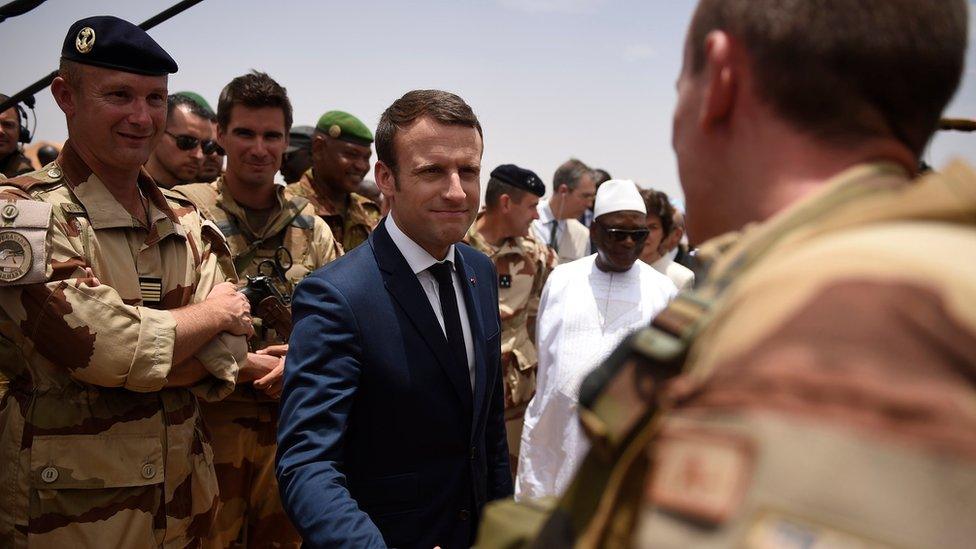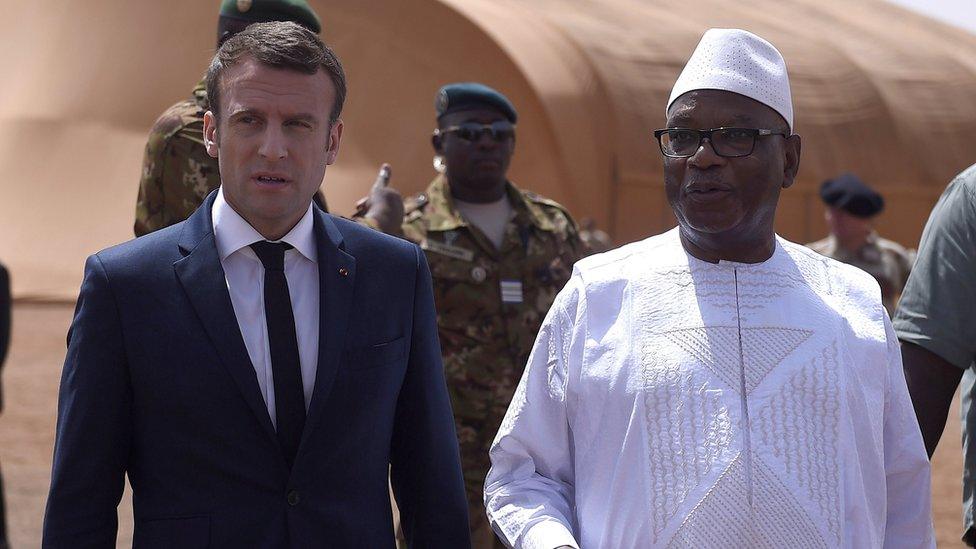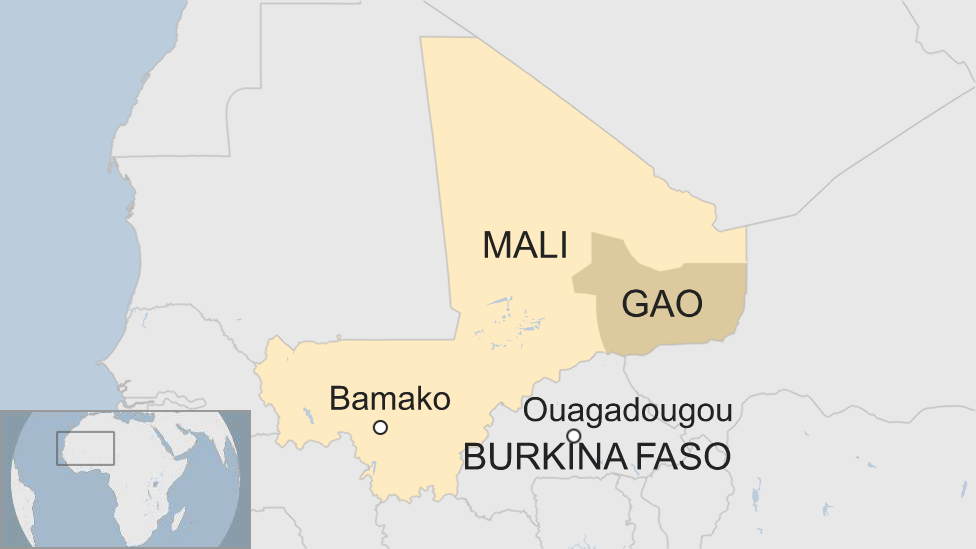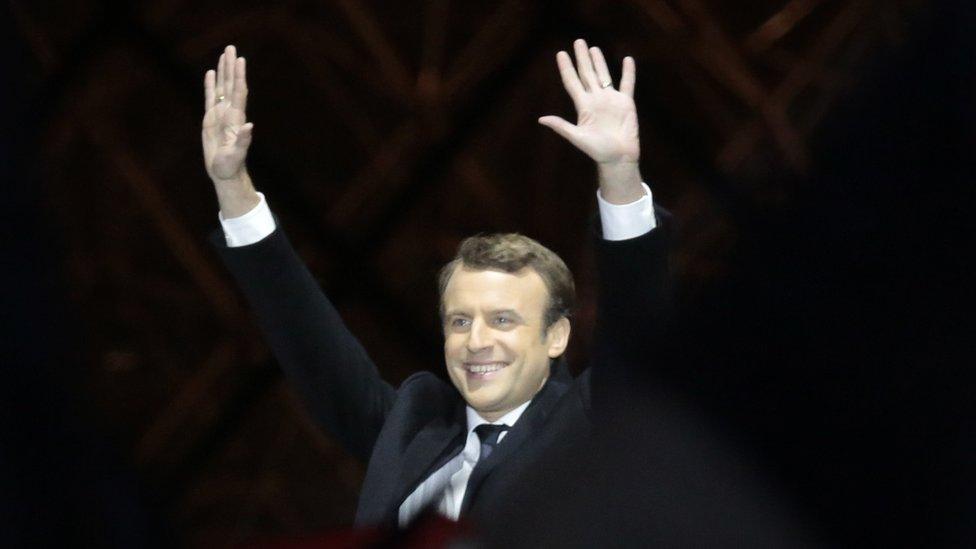Macron in Mali: France will be 'uncompromising' in fight against terrorists
- Published

French President Emmanuel Macron is visiting Mali
Emmanuel Macron has said France will be "uncompromising" in the fight against "Islamist terrorists" in Mali, during a short visit to the country.
France's new president also reaffirmed his commitment to helping the West African country, where French soldiers have been facing extremists since 2013.
Mr Macron said he hoped to strengthen ties with Germany to boost security in the area, according to Reuters.
This trip is Mr Macron's second foreign visit since his inauguration on Sunday.
He has already visited German Chancellor Angela Merkel in Berlin.
Mr Macron arrived in Gao, in the north of the former French colony, just before 10:00 GMT (11:00 BST) on Friday.
He was met by Mali's President Ibrahim Boubacar Keita, to discuss the threat of terrorism in the country.
As expected, he vowed to continue his predecessor's policy regarding France's military presence in West Africa.
"France is determined to stay by your side completely, and without fail," he said, according to French broadcaster LCI [in French, external].
This is Emmanuel Macron's second foreign trip since taking office
He also spoke of his wish to strengthen ties with German troops working in Mali.
"Germany is very present in back-up operations," he said. "I want to strengthen that partnership and make sure that this German commitment, which is already present, can be intensified.
"Germany knows what is at stake here (and) is also part of Europe's security and our future. Neither France nor Germany are isolated islands."
However, Mr Macron went on to speak of the importance of economic development, saying "terrorists thrive on misery".
"Anything done on the ground would be short-lived if we were not committed to investing in infrastructure or education," he continued in a statement shared on Twitter.
Mr Macron - accompanied by Defence Minister Sylvie Goulard and her predecessor, now Foreign Minister Jean-Yves Le Drian - is due to review some of the 4,000 anti-insurgent troops France has deployed in the region.
France retains a strong influence in its former colonies.

Mr Macron arrived in Mali was welcomed by President Ibrahim Boubacar Keita
Mr Macron has talked about writing a new page in his country's relationship on the continent, and of breaking away from the old neo-colonial networks.
As a candidate, he stirred controversy at home by labelling France's colonial war in Algeria a crime against humanity - something which was well-received in the former colonies.

Analysis: Mark Lowen, in Paris
The choreography of the first week in office of any head of state is delicate. Impressions are formed quickly and judgements are made that often endure. Emmanuel Macron has done the diplomacy with Angela Merkel, the internal politics with his cabinet and now he's fulfilling the role of commander-in-chief, visiting French troops in Mali.
In part, it's good optics, being seen to support the 4,000 soldiers stationed in West Africa since 2014. He will be stamping his authority on the French-led mission fighting armed groups in the Sahel, which he's expected to pursue.
Mr Macron's new foreign minister, Jean-Yves Le Drian, was defence minister when the intervention was launched. But there's clearly a practical purpose too: to discuss France's counter-terrorism efforts and assess whether more needs to be done. 332 people were killed in attacks in Mali last year alone, and plenty of questions remain over the assassination of two French journalists there in 2013.
So symbolism and substance for the new president as he assumes the task of protector of the French nation.

- Published19 May 2017
